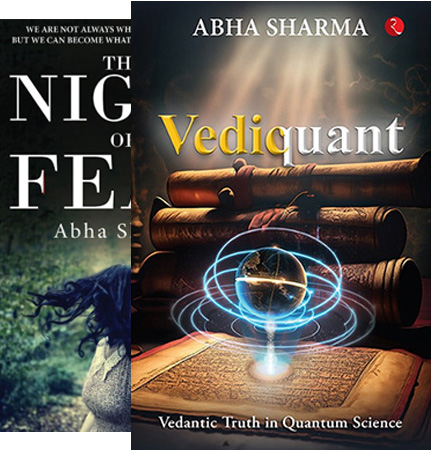The blue afternoon sky was decked with an unusual pattern of clouds, as if scores of similar formations had been arranged in a meticulously planned order of size. I paused my walk to absorb the beauty of the remarkable formations, when a child, nine-years old, whom I had never seen before, stopped his bike beside me and spontaneously uttered, “Those are beautiful clouds, aren’t they? Who creates those clouds?”
I was stunned at the depth of the question, and I looked at him with amazement, not expecting a little child to think that deeply. His question went beyond the apparent phenomenon, to the origin of all phenomena. It was ‘who’, not ‘how’.
He on the other hand, lost in his thoughts, continued, “My father says that God has created everything.” Then for some reason I cannot fathom, he looked at me and posed a direct question, “But if God has created everything, who has created God? Do you know the answer?”
I said, “Do you want the answer?”
Spirituality is Curiosity
As children, we all have questions, and like that little child, we are open to learn from whoever can give us the answers. But as we grow older, we curb our curiosity and settle into a disposition where we limit ourselves only to already available answers. Quite erroneously, we call that knowledge.
Under that illusion of knowledge, we stop asking our own questions. We begin to consider the pre-existing sets of answers as knowledge. In the process, we condition our brains to accept the evident, the visible as the only reality.
Spirituality is Going Beyond the Apparent
All of science, in that context, is spirituality. Science is the quest for answers to the mysteries of existence. It is a dedicated practice. Momentous discoveries were made because the scientists chasing the mysteries had the firm determination that answers could be found. That faith is deeper than the religious faith of many people among us.
It is the faith that there has to be an explanation for everything that is happening around us; from sprouting of a seed to formation of black holes. That faith brings in perseverance and fortitude. And when one is dedicated to a cause, results are bound to come. That is spirituality — that is the essence of Albert Einstein’s belief in Spinoza’s God.
Your Inner Voice is Spirituality
Unlike scientists, most of us grow up and get into the habit of ignoring the deep questions. Yet, the questions remain embedded somewhere in our subconscious. When difficult times strike, the forced calm of the mind is disturbed, like the surface of a lake that is apparently calm but tumultuous beneath, and then the questions resurface. In those times, we demand answers.
That desire to know your true self, your innermost reality, is spirituality. It is the pursuit of the ultimate answers, a journey in which we leave the familiar assumptions and explore the unknown. When we begin to pay attention to that little voice inside of us, and are not afraid of seeking answers, we acknowledge our spiritual nature.
We All are Choicelessly Spiritual
We all are spiritual beings whether or not we like to use that term. Words don’t matter. Only our quest matters. Being spiritual in this sense only implies the desire to be aware of one’s true nature. No matter however we delude ourselves, we know we don’t have all the answers.
At the same time, the fire of the perpetual quest keeps burning in the innermost recesses of our being. That is because we all have a desire to transcend uncertainty, to find lasting happiness. For that, we follow different paths.
Some of us think sufficient wealth can give us that, while others think that being a good person can get us peace. A few among us pursue art, music, or the like, to transcend the gross. The purpose is the same, the search for that illusive ultimate happiness.
Spirituality is not Dependent upon Religion
Religion can be one way to pursue that happiness, but you can be aware of your spiritual inclination without any connection with any religion. Religion is a systematization, one way of approaching the same truth. But the ultimate truth is independent of all that language and human imagination can capture.
Spirituality does not necessarily manifest through ritualism and religious practices. Otherwise, why do so many people turn bitter and disappointed when life’s troubles get too heavy, even though they have been following such religious practices through life?
The same holds true for humanitarian work, charity, or goodwill, which might or might not help you go beyond the nagging questions, depending upon your inner voice — the intention with which you pursue these things.
Spirituality is the Idea of Truth
We all are part of this Universe, hence we all are made of the same substance. The word ‘spiritual’ is a mere specific symbol of the grand adventure we are in. Even if we use some other word, we all are seeking the same thing at the end of the day. The differences between us, as Swami Vivekananda had pointed out, are of degree only.
The important thing is to keep learning, to keep the curiosity alive, like that little child. When you are no longer satisfied with the limited, when you want to know what lies beyond the sky and beneath the surface of your mind, when you widen your horizons to learn and to question, you are experiencing visible manifestations of your inner spirituality — your core, your truth.






